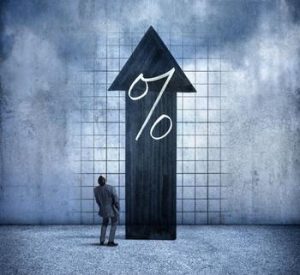 According to a new report from doxo, a bill-pay company, entitled “The Hidden Costs of Bill Pay Report – 2023,” has uncovered that American consumers are losing billions of dollars every year to hidden fees—also called “junk fees” in some circles—driven mostly by the increased cost of credit, overdraft fees, late fees, and fraud.
According to a new report from doxo, a bill-pay company, entitled “The Hidden Costs of Bill Pay Report – 2023,” has uncovered that American consumers are losing billions of dollars every year to hidden fees—also called “junk fees” in some circles—driven mostly by the increased cost of credit, overdraft fees, late fees, and fraud.
According to doxo, U.S. households spend over $3.87 trillion on household bills, and $3.22 trillion on the 10 most common recurring ones such as mortgage, rent, and credit card bills. Staying on top of these bills is the single largest determinant for consumer financial health.
By the numbers, hidden fees in banking and bill payments totaled $167 billion annually in 2023—averaging out to $1,268 in fees per household.
2023’s figures are 29% higher than they were in 2022, when they had an impact of $128 billion, or $968 per household. Mostly moderate increases contributed to this spike, with credit impacts seeing the biggest increase, which is not surprising given rising rates across the board. Last year credit fees cost consumers an average of $658, as compared to $945 in this year’s report.
“In today’s uncertain economic climate, it’s never been more critical for American consumers to be aware of the hidden fees associated with their household bills. This includes costs like identity fraud, late fees, overdraft fees and detrimental credit impacts,” said Liz Powell, Senior Director of INSIGHTS at doxo. “The reality is that while many Americans are paying the price, these hidden costs are easily avoidable expenses. Using a service like doxo can help people avoid incurring a per-household cost of $1,268 a year on average, empowering consumers to achieve their financial goals while spending less time and effort managing their bills.”
Behind the numbers of the average $1,268 in fees leveraged to households:
- $67 in Identity Fraud Costs: The average household out of pocket costs for identity fraud amounts to $9 billion, or $67 per household a year, as compared to a total of $7 billion, or $54 dollars per household, last year. These are just the direct costs, not including the time and expense consumers spend to restore and repair their identity records once compromised.
- $75 in Overdraft Fees: Banks charged consumers over $10 billion in overdraft fees this year, or about $75 per household. This is compared to a total of $16 billion, with an average of $119 per household, last year. According to a number of reports, in general, overdraft fees are dwindling.
- $181 in Late Fees: Missing or paying a bill late often incurs late fees, and 31% of households reported incurring one or more late fees. This totaled $24 billion in household expenses, or $181 per household, as compared to a total of $20 billion, or $155 per household last year.
- $945 in Added Costs of Credit: Staying current on bills and debt payments is a primary factor for strengthening credit. doxo’s analysis shows that staying ahead on payments and improving a credit score by 35 points can save the average household $945 per year in interest expense. The average U.S. household carries over $100,000 in revolving debt—between mortgages, auto loans, and credit cards, primarily—so boosting credit and qualifying for lower interest rates significantly reduces expenses.
Click here to read the report in its entirety.

 theMReport.com Your trusted source for mortgage banking news
theMReport.com Your trusted source for mortgage banking news








